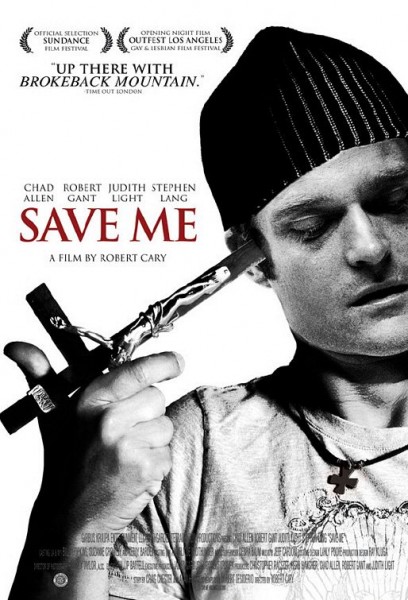One Eight Seven (Kevin Reynolds, 1997)

The titles refers to the police code for the crime of homicide. The films centers around a teacher, Trevor Garfield, (Sam Jackson), who is stabbed by one of his students in New York City after a warning written into a textbook. Of course being a teacher, the administration ignores all warnings. Garfield moves to the other coast where he becomes a substitute teacher and where the main story begins.
I have no problem with films about teachers. I must say the whole "teach vs. gangbanger student" thing is becoming very worn. The idea especially runs thin because so much of the plot is contrived and seems caterred to an audience composed of women who open enroll their kids out of the city and into the suburb schools. Things such as drugs, teen pregnancy, and violence don't go on in suburb schools. I'm ranting now, but I'll digress. Even so the story of One Eight Seven is preposterous. Think of Death Wish meets Dangerous Minds and you might be on to something. Clifton Collins Jr. plays the antagonist to Sam Jackson and does a fine job, as well as he could do for the material. Nevermind the fact that at 26 years old he really doesn't give the vibe of an 18 year old.
The direction the film takes roughly an hour in, once the viewer's expectations for our wonderful hero, Garfield are obscured, is a complete wash. The finalle is equally as ridiculous. The film shows promise with some nice close in, clausterphobic shots, introducing the character of Garfield. There's a nice introduction showing Sam Jackson pedal his bike furiously across the Brooklyn bridge. Why doesn't he live in Brooklyn where he teaches? Who knows? Skip this garbage and go watch The Principal if you want some silly entertainment. If you want something more serious watch the brilliant, Half Nelson. Otherwise pop in Death Wish.
Grade: D

The titles refers to the police code for the crime of homicide. The films centers around a teacher, Trevor Garfield, (Sam Jackson), who is stabbed by one of his students in New York City after a warning written into a textbook. Of course being a teacher, the administration ignores all warnings. Garfield moves to the other coast where he becomes a substitute teacher and where the main story begins.
I have no problem with films about teachers. I must say the whole "teach vs. gangbanger student" thing is becoming very worn. The idea especially runs thin because so much of the plot is contrived and seems caterred to an audience composed of women who open enroll their kids out of the city and into the suburb schools. Things such as drugs, teen pregnancy, and violence don't go on in suburb schools. I'm ranting now, but I'll digress. Even so the story of One Eight Seven is preposterous. Think of Death Wish meets Dangerous Minds and you might be on to something. Clifton Collins Jr. plays the antagonist to Sam Jackson and does a fine job, as well as he could do for the material. Nevermind the fact that at 26 years old he really doesn't give the vibe of an 18 year old.
The direction the film takes roughly an hour in, once the viewer's expectations for our wonderful hero, Garfield are obscured, is a complete wash. The finalle is equally as ridiculous. The film shows promise with some nice close in, clausterphobic shots, introducing the character of Garfield. There's a nice introduction showing Sam Jackson pedal his bike furiously across the Brooklyn bridge. Why doesn't he live in Brooklyn where he teaches? Who knows? Skip this garbage and go watch The Principal if you want some silly entertainment. If you want something more serious watch the brilliant, Half Nelson. Otherwise pop in Death Wish.
Grade: D
__________________
"A candy colored clown!"
Member since Fall 2002
Top 100 Films, clicky below
http://www.movieforums.com/community...ad.php?t=26201
"A candy colored clown!"
Member since Fall 2002
Top 100 Films, clicky below
http://www.movieforums.com/community...ad.php?t=26201











